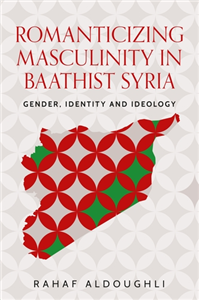Description
More Information
Rights Information
Albania, Algeria, Angola, Argentina, Armenia, Australia, Austria, Bahrain, Belgium, Belize, Benin, Bolivia, Bosnia and Herzegovina, Botswana, Brazil, Bulgaria, Burkina Faso, Burundi, Cameroon, Canada, Cape Verde, Central African Republic, Chad, Chile, China, Colombia, Comoros, Congo [DRC], Congo, Republic of the, Costa Rica, Ivory Coast, Croatia, Czech Republic, Denmark, Djibouti, Ecuador, Egypt, El Salvador, Equatorial Guinea, Eritrea, Estonia, Ethiopia, Faroe Islands, Finland, France, French Guiana, Gabon, Gambia, Georgia, Germany, Ghana, Greece, Guatemala, Guinea, Guinea-Bissau, Guyana, Honduras, Hongkong, Hungary, Iceland, India, Indonesia, Iran, Iraq, Ireland, Israel, Italy, Japan, Jordan, Kazakhstan, Kenya, Kuwait, Latvia, Lebanon, Lesotho, Liberia, Libya, Lithuania, Luxembourg, Macau, China, Macedonia [FYROM], Madagascar, Malawi, Malaysia, Mali, Malta, Mauritania, Mauritius, Mayotte, Mexico, Mongolia, Montenegro, Morocco, Mozambique, Namibia, Netherlands, New Zealand, Nicaragua, Niger, Nigeria, Norway, Oman, Pakistan, Panama, Paraguay, Peru, Philippines, Poland, Portugal, Puerto Rico, Qatar, Reunion, Romania, Russia, Rwanda, Saint Helena, Sao Tome and Principe, Saudi Arabia, Senegal, Serbia, Seychelles, Sierra Leone, Singapore, Slovakia, Slovenia, Somalia, South Africa, South Korea, Spain, Sri Lanka, Sudan, Suriname, Swaziland, Sweden, Switzerland, Syria, Taiwan, Tanzania, Thailand, Timor-Leste, Togo, Tokelau, Tunisia, Turkey, Uganda, Ukraine, United Arab Emirates, United Kingdom, United States, Uruguay, Venezuela, Vietnam, Western Sahara, Yemen, Zambia, Zimbabwe, South Sudan, Cyprus, Palestine, Bangladesh, Cambodia, Liechtenstein, Azerbaijan, Jamaica, Kyrgyzstan, Dominican Republic, Myanmar, Monaco
Endorsements
Romantic nationalism has profoundly shaped the contours of Syrian identity under Baathist rule, creating deeply rooted habits of thought that continue to impact the lives of Syrians today. Far from being an indigenous construct, this specific ideal of national identity has roots in 18th- and 19th-century French and German social philosophy, which was closely studied and championed by the Baathist "founding fathers." This vision of the national community included, among other features, a novel view of gender roles in public life, emphasizing the muscularity of patriarchal protectors and the adoration of supporting women. Gender, passion, and nation in Baathist Syria is the first book to address these European borrowings in Baathism and to document how the associated gender ideologies filtered down to impact the everyday lives of Syrian women and men. Tracing the concepts of Romantic, muscular nationalism from the writings of the Baathist founders, to political and legislative implementations, and ultimately to impacts on everyday popular culture, the book demonstrates how a new regime of Romantic gendered identity became central in Baathist efforts to unify the country's heterogenous religious and ethnic communities. Continuing up to the current day, the final chapters of the book address how this gendered nationalism has contributed to violent conflict in Syria and how it is being challenged by new concepts of civic pluralism.
Reviews
Romantic nationalism has profoundly shaped the contours of Syrian identity under Baathist rule, creating deeply rooted habits of thought that continue to impact the lives of Syrians today. Far from being an indigenous construct, this specific ideal of national identity has roots in 18th- and 19th-century French and German social philosophy, which was closely studied and championed by the Baathist "founding fathers." This vision of the national community included, among other features, a novel view of gender roles in public life, emphasizing the muscularity of patriarchal protectors and the adoration of supporting women. Gender, passion, and nation in Baathist Syria is the first book to address these European borrowings in Baathism and to document how the associated gender ideologies filtered down to impact the everyday lives of Syrian women and men. Tracing the concepts of Romantic, muscular nationalism from the writings of the Baathist founders, to political and legislative implementations, and ultimately to impacts on everyday popular culture, the book demonstrates how a new regime of Romantic gendered identity became central in Baathist efforts to unify the country's heterogenous religious and ethnic communities. Continuing up to the current day, the final chapters of the book address how this gendered nationalism has contributed to violent conflict in Syria and how it is being challenged by new concepts of civic pluralism.
Author Biography
Rahaf Aldoughli is a lecturer in Middle East and North African Studies at Lancaster University.
Manchester University Press
Manchester University Press is a leading UK publisher known for excellent research in the humanities and social sciences.
View all titlesBibliographic Information
- Publisher Manchester University Press
- Publication Date July 2024
- Orginal LanguageEnglish
- ISBN/Identifier 9781526147622 / 1526147629
- Publication Country or regionUnited Kingdom
- FormatPrint PDF
- Pages216
- ReadershipCollege/higher education; Professional and scholarly
- Publish StatusPublished
- Dimensions234 X 156 mm
- Biblio NotesDerived from Proprietary 5122
- SeriesIdentities and Geopolitics in the Middle East
- Reference Code12785
Manchester University Press has chosen to review this offer before it proceeds.
You will receive an email update that will bring you back to complete the process.
You can also check the status in the My Offers area

Please wait while the payment is being prepared.
Do not close this window.



